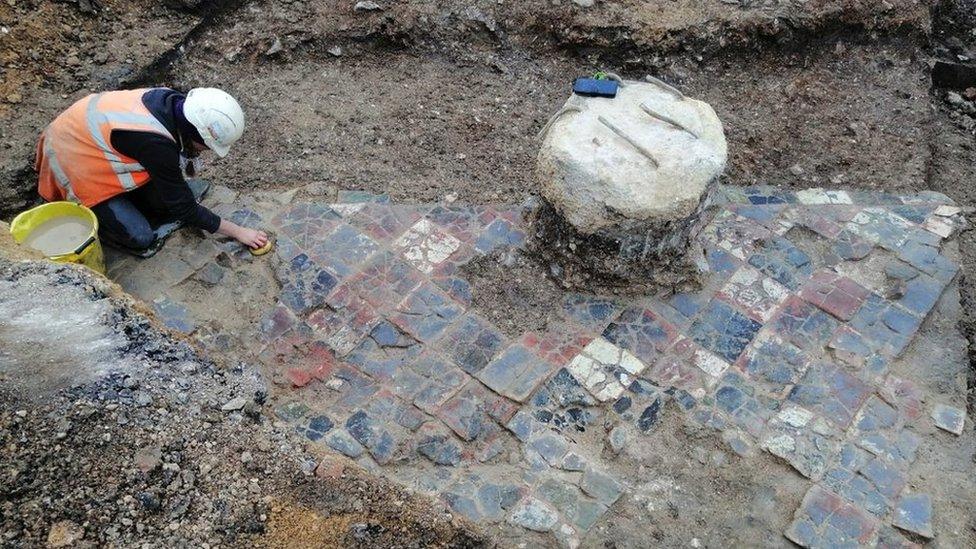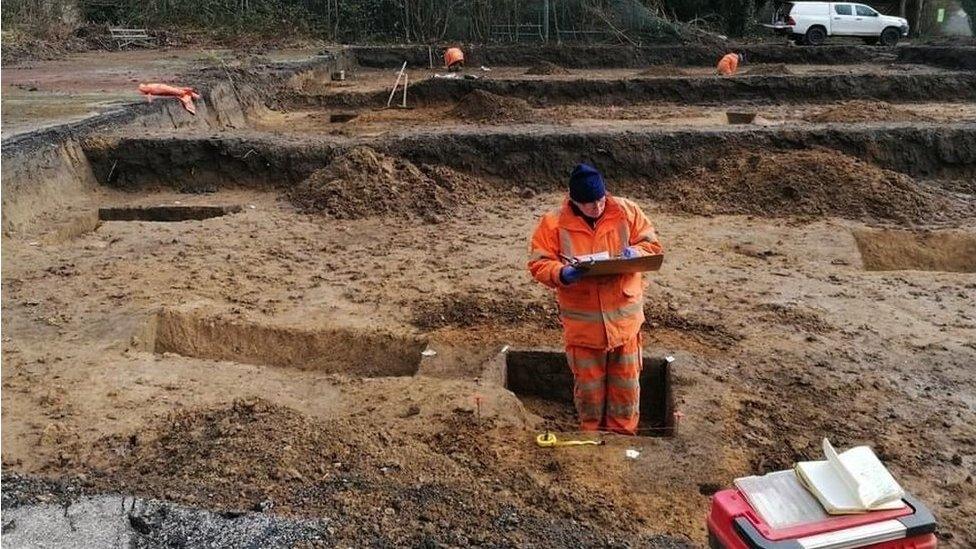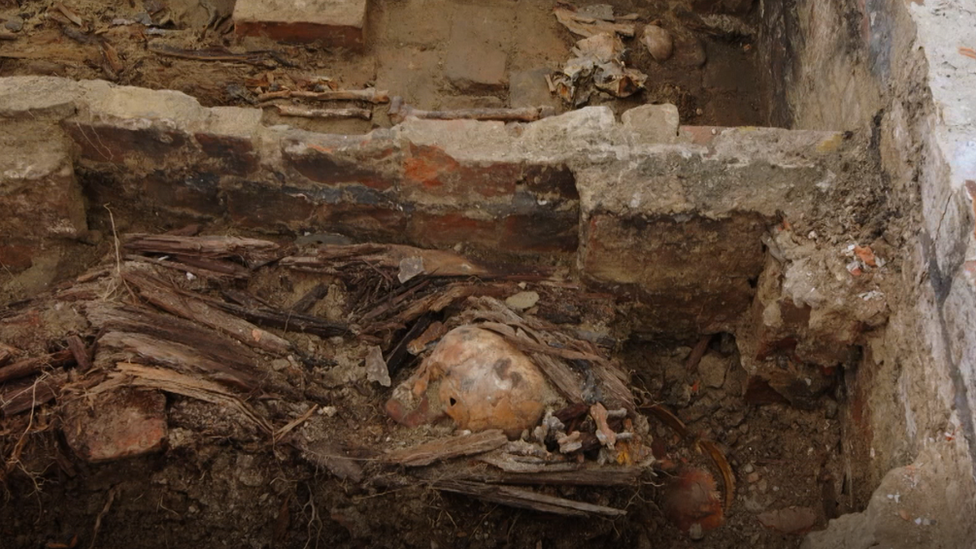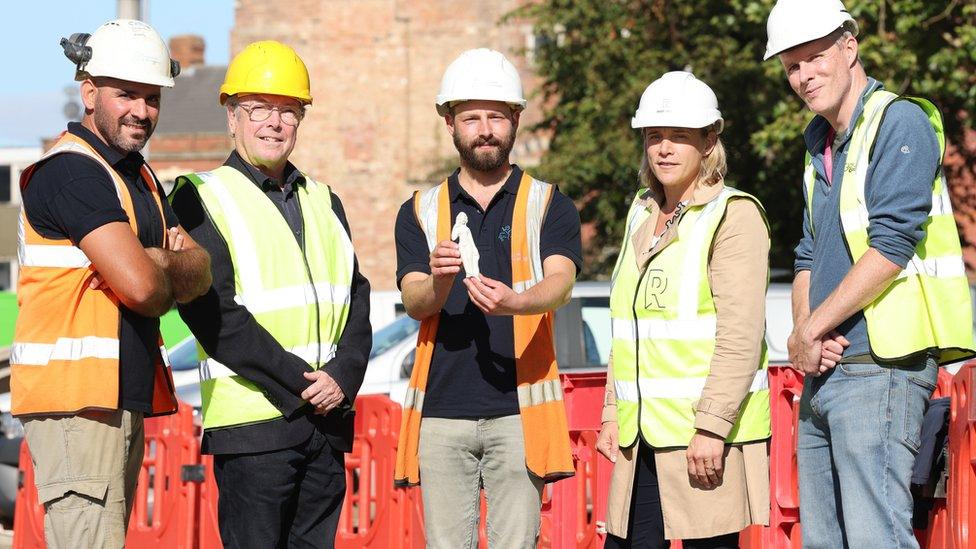Gloucestershire dig team uncover medieval tiled floor
- Published

The medieval floor was found two meters below ground level
Archaeologists at a city dig site have uncovered a medieval tiled floor dating back to around the 13th Century.
The discovery was made in Gloucestershire at the location of the new £107m development, The Forum.
The floor, made of glazed white and green tiles, belonged to the cloister of the city's medieval Whitefriars Carmelite Friary and was unearthed by the Cotswold Archaeology team.
Archaeologist Anthony Beechey described the find as "extra special".
Mr Beechey explained that the "beautiful tiled floor is in remarkably good condition".
"Most of our Whitefriars findings are fragments of the original structure while this floor is largely intact, making the discovery extra special" and the excavation process "endlessly fascinating", he added.
'Best-preserved finding'
Andrew Armstrong, city archaeologist at Gloucester City Council, said: "It is thrilling to see yet more evidence of Whitefriars emerge and this is the best-preserved finding to date."
He added: "The friary played an active role in the city for 300 years and yet, until these excavations started, very little was known about it."
Whitefriars' exact location in Gloucester was the subject of speculation for decades until the archaeological investigations began, following the demolition of the former multi-storey carpark on Bruton Way in early 2020.
The Forum is being developed into a new social and digital quarter by the council and Reef Group.
Councillor Richard Cook said the findings are shining "a light on Gloucester's historic heritage".
In September 2021, an 1,800-year-old figurine was uncovered by Cotswold Archaeology close to the area of the site currently being excavated.

Follow BBC West on Facebook, external, Twitter, external and Instagram, external. Send your story ideas to: bristol@bbc.co.uk , external
Related topics
- Published31 January 2022

- Published16 January 2022

- Published6 January 2022

- Published29 September 2021
